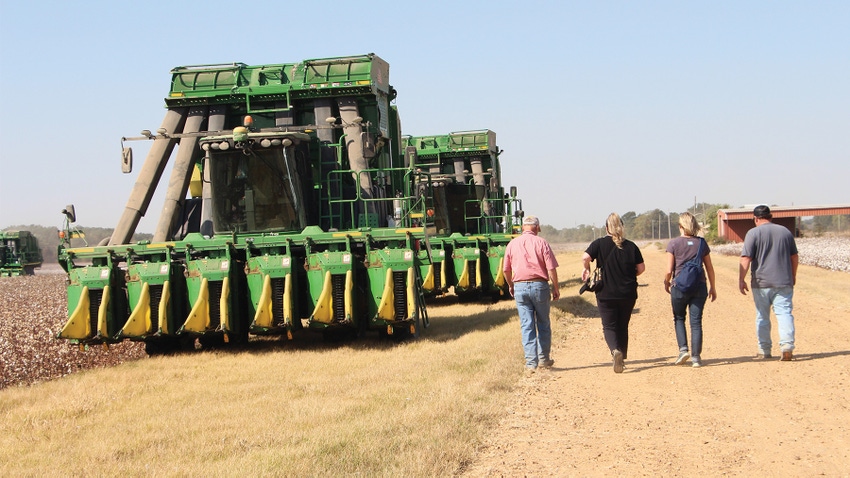
U.S. cotton has a great sustainability story to tell, but the challenge remains — how do you tell this story to the companies who make and market clothing, home furnishings, and other products?
Since it was launched in 1970 in response to increased market dominance from polyester and other synthetic fibers that threatened to put U.S. cotton out of business, Cotton Incorporated has told the story of U.S. cotton to brands, retailers and consumers. As a natural fiber, cotton is the natural choice.
Cotton certainly has a better sustainability story to tell than synthetic fibers. As a cellulosic fiber, cotton biodegrades, while synthetic fibers such as polyester do not. William Kimbrell, COO and executive vice president of Cotton Incorporated, notes that sustainability has been on the minds of cotton farmers for a long time.
“When I first started at Cotton Incorporated, sustainability wasn’t even a really a word. It was something that we already did. U.S. cotton growers were already looking for ways to do things more efficiently, grow cotton in a more responsible way, not only because it was good for the environment, but also looking for ways for us to be more profitable,” Kimbrell said at the annual meeting of Southern Cotton Growers/Southeastern Cotton Ginners Association Jan. 24 at the Westin Resort in Hilton Head, S.C.
Today, brands and retailers are requiring that sustainable production practices be verified with data and proof that suppliers are meeting ESG (Environmental, social and governance) targets. The U.S. cotton industry has always strived to meet the demands of its textile company customers, which is why all sectors of the industry are committed to the U.S. Cotton Trust Protocol because the requirements for sustainably produced fiber are not going away.
The U.S. Cotton Trust Protocol was launched in 2020 with the goal of providing quantified and verified data on the sustainable practices cotton farmers use in producing the natural fiber. Beyond doubt, cotton farmers are committed to environmentally friendly production practices, the trust protocol provides the data and numbers to back it all up.
For more than 50 years, Cotton Incorporated has done a tremendous job educating brands, retailers, and consumers on the natural benefits of U.S. grown cotton. Among the more powerful tools are farm visits, where makers of products from blue jeans to bath towels can see first-hand just how sustainable U.S. cotton truly is.
These tours work because the people who bring cotton products to market can see for themselves that U.S. cotton farmers are committed to sustainability. Even more importantly, these tours provide the opportunity for blue jean makers to personally meet the farmers who produce the natural fiber they use. As we all know, U.S. cotton farmers are the finest folks you will ever meet.
Read more about:
High CottonAbout the Author(s)
You May Also Like






